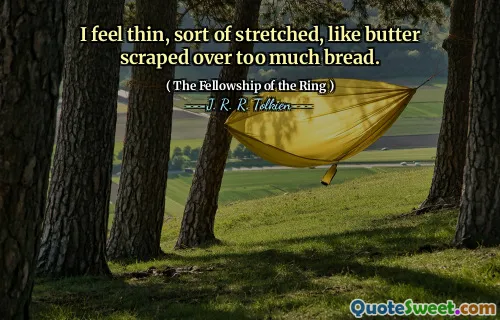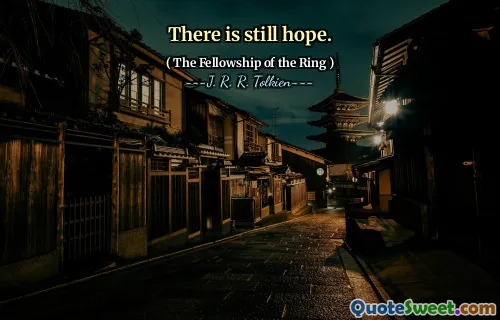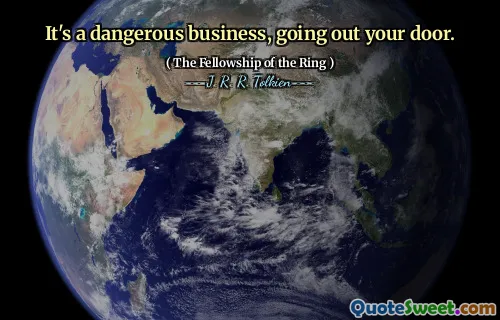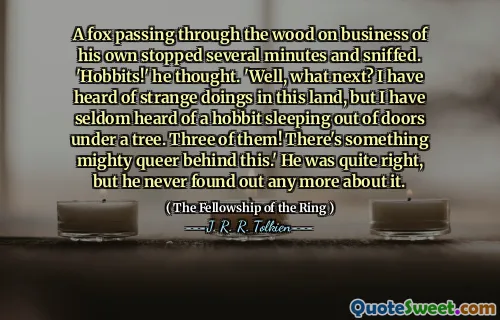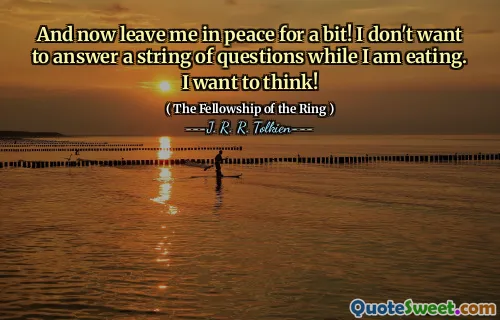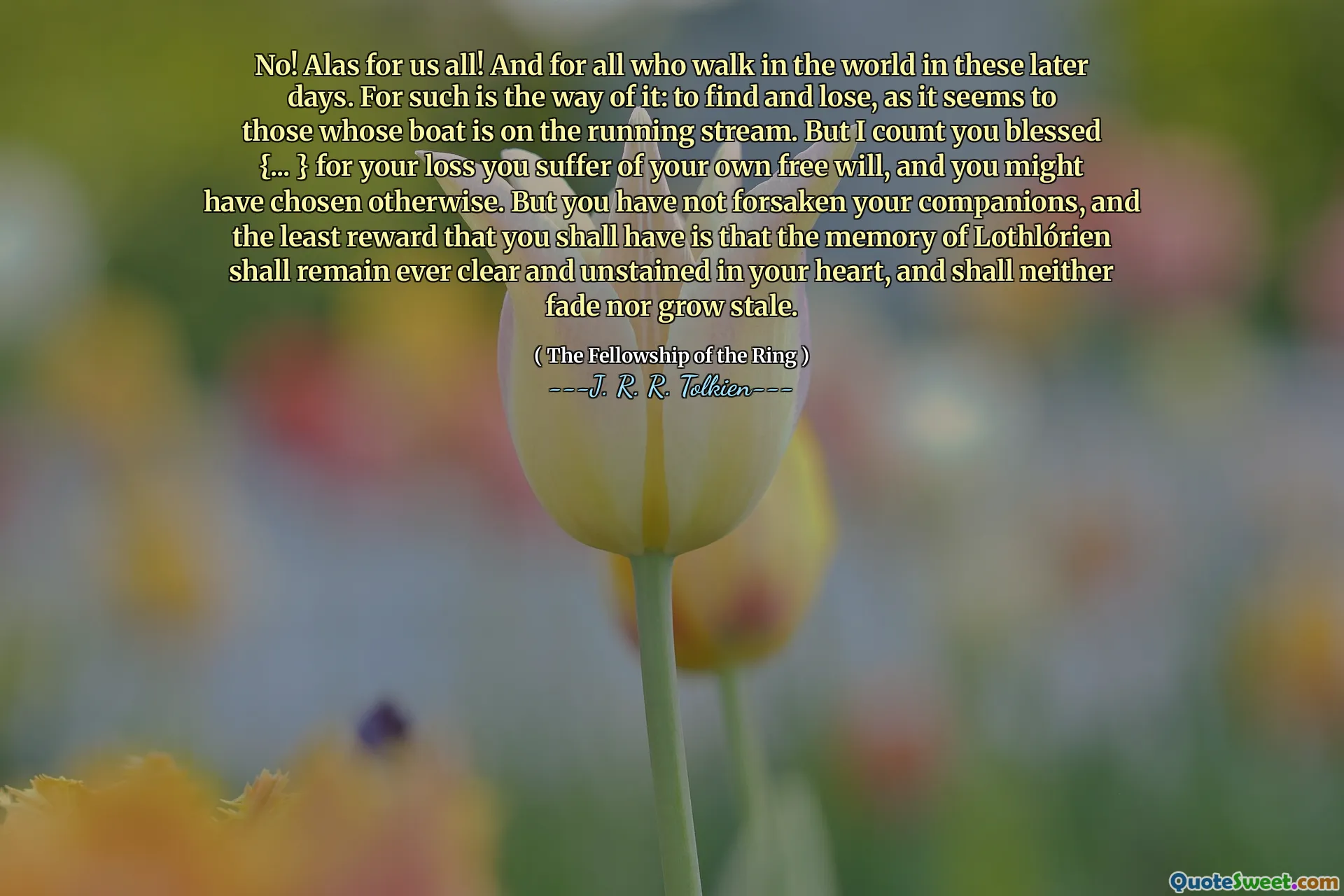
No! Alas for us all! And for all who walk in the world in these later days. For such is the way of it: to find and lose, as it seems to those whose boat is on the running stream. But I count you blessed {... } for your loss you suffer of your own free will, and you might have chosen otherwise. But you have not forsaken your companions, and the least reward that you shall have is that the memory of Lothlórien shall remain ever clear and unstained in your heart, and shall neither fade nor grow stale.
This passage eloquently captures the inevitability of loss and the enduring nature of memory, themes that resonate deeply within the human experience. Often, life presents us with choices—some difficult, some seemingly inevitable—and the way we respond shapes our grasp of meaning and resilience. The speaker underscores that loss is an intrinsic part of life's journey, especially for those whose souls are constantly striving, navigating the turbulent currents of existence. Yet, amid such loss, there’s a recognition of agency—when one willingly endures hardship rather than fleeing from it, they attain a form of blessedness as it stems from their own volition. This idea elevates the act of facing sorrow as an assertion of strength and integrity, rather than weakness. The reference to not forsaking companions further emphasizes loyalty and collective bonds, which lend meaning and comfort amidst turbulent times. The mention of Lothlórien, a land symbolic of eternal beauty and refuge, acts as a metaphor for cherished memories that safeguard our inner peace and identity. These recollections remain vibrant and pristine, unmarred by the passage of time or suffering. The quote, therefore, offers a profound meditation on the importance of chosen endurance, the sanctity of memory, and the nobility found in facing loss with dignity. It prompts us to reflect on how we handle our own hardships and the legacy of memory we leave behind.
